Overview of Sales Engagement Platforms: Key Features and Benefits
- What Are Sales Engagement Platforms?
Sales engagement platforms are software tools that help sales teams automate and manage their outreach efforts. They unify multiple communication channels like email, calls, SMS, and social media into a single system.
- Why Are Sales Engagement Platforms Important?
The modern sales process is digital and data-driven, requiring timely follow-ups and multi-channel communication. Traditional manual methods struggle to scale and often miss leads or create disorganized workflows. Sales engagement software solves these challenges by automating tasks and providing real-time insights.
- Key Features of Sales Engagement Platforms
Multi-channel engagement lets reps connect with buyers on their preferred platforms.
Automated follow-up sequences keep leads warm and reduce manual work.
Real-time analytics provide visibility into what’s working and help improve sales strategies.
Personalization at scale ensures communications feel relevant and human.
- Benefits of Using Sales Engagement Platforms
Increase sales team productivity by reducing administrative tasks.
Better manage and score leads to prioritize high-potential prospects.
Deliver personalized, consistent outreach that builds trust and drives conversions.
- Top Platforms to Consider
CallHippo AI Sales Agent: Automates calls and lead qualification with AI-powered tools.
Outreach, SalesLoft, Pipedrive, HubSpot Sales Hub, Lemlist, Yesware, RingCentral Engage - each offers unique strengths in automation, integration, and analytics
Selling has changed. It’s no longer just about charm and persistence. It’s about timing, data, and consistency. Buyers are more informed, the sales cycle is longer, and competition is only a click away. Guesswork doesn’t cut it anymore.
That’s why sales engagement platforms matter. They act as your sales command center, bringing together tools, channels, conversations, and insights. No surprise that 87% of sales development teams now use sales engagement software, making it one of the most effective technologies for ROI.
Let’s explore why they’re essential and which platforms lead the market.
Why Is Sales Engagement Critical For Your Business?
Sales isn’t only about persuading someone to buy. Sales engagement refers to establishing a trusted relationship, following up at the right time, and delivering value with every interaction. That’s difficult to accomplish without the right tools and accurate customer data.
In this section, we will explore why sales engagement has grown into a critical need for today’s businesses and how dated ways of engaging prospects are hindering organizations.
The Changing Sales Landscape
Decades ago, sales reps were still knocking on doors and had a traditional meeting presence. Today, nearly everything is online. Sales teams find themselves working remote, buyers want to conduct research themselves, and decisions are driven by data.
- According to Gartner, by 2025, 80% of B2B sales interactions between suppliers and buyers will take place in digital channels, as buyers now spend only 17% of their time meeting with potential suppliers, making virtual selling the dominant approach.
In this world of selling, the only way to build relationships is through email, DM, or on video calls. Although sales reps have to manage multiple engagement channels and flow multiple conversations, they still have quotas to hit. Without the right tools, it can feel like trying to juggle in the dark.
Sales engagement software fills that gap. It allows your reps to engage through all channels, be organized, and track performance all in one system.
The Challenges Of Traditional Sales Methods
Here’s the truth: most traditional processes have difficulty scaling. You’ll be fine with manual follow-up and a cluttered spreadsheet with 5 leads, but not with 50 or 500.
Some of the common issues are:
- Missed follow-ups with leads, which cause them to fall through the cracks.
- Too many disconnected tools create confusion.
- Inconsistent communication between team members.
- No visibility into what’s working (or isn’t)
These issues stall your growth. A sales engagement platform with effective sales engagement strategies solves this by aligning your team, automating repetitive tasks, and giving you full visibility.
Key Features of A Sales Engagement Platform
A quality sales engagement platform helps build a system that’s scalable, repeatable, and reliable. While sales engagement focuses on managing interactions, sales enablement supports those interactions with the right content, tools, and training. Together, they strengthen the entire sales process.
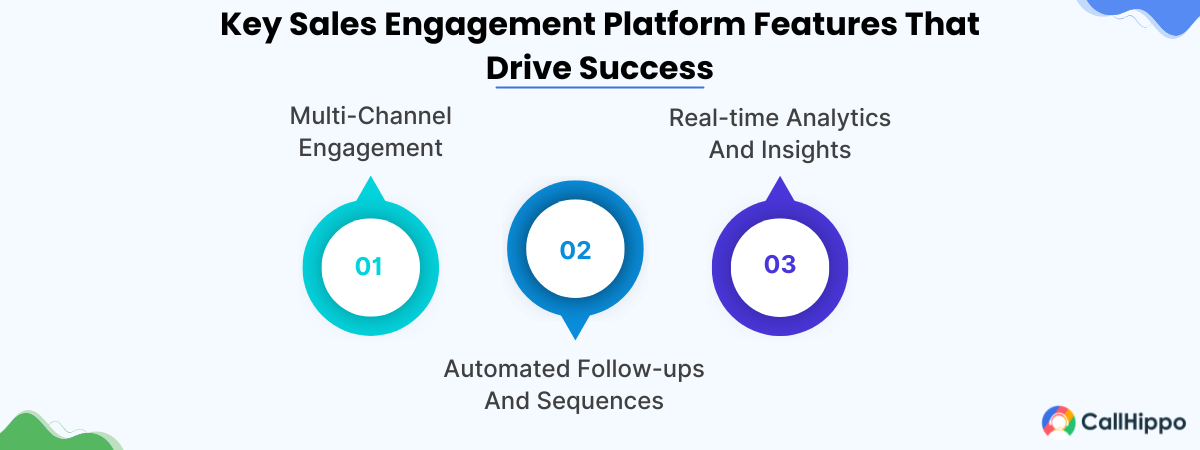
Let’s examine how key sales engagement features drive real impact.
1. Multi-Channel Engagement
Sales engagement platforms bring all the channels, email, calls, SMS, social, and chat, into one place. Reps no longer have to jump around between tabs or applications. The app helps sales teams manage everything. They can see the entire conversation history with the buyer, respond promptly, track customer interactions, and create a consistent experience.
2. Automated Follow-ups And Sequences
A sales engagement platform lets you build smart sequences. For example:
- Day 1: Email introduction
- Day 3: LinkedIn connect request
- Day 5: Reminder email with a value offer
- Day 8: Call attempt
These workflows run automatically, but still feel human, because you can personalize them. It saves sales efforts, time, reduces mistakes, and keeps your pipeline warm without pressure.
- Sales teams that use AI for follow-ups in 2025 are seeing revenue increases of up to 83%.
3. Real-time Analytics And Insights
Best practice sales engagement platforms are going to provide you with real-time insights into your outreach, etc. You can uncover your sales effectiveness, like the highest propensity channels, your most productive messages, and even your optimal outreach times. For the sales leaders, this supports smarter coaching. For the reps, this supports what worked and getting better at it.
Benefits Of Using A Sales Engagement Platform
Investing in sales engagement software is about more predictably and efficiently building revenue. Let’s look at some of the real-world benefits.
1. Increased Productivity For Sales Teams
On average, a sales rep spends over a third of their day on admin-related work. That’s time not spent closing deals.
- Sales reps report spending 70% of their time on non-selling tasks, making it difficult to connect with prospects.
Sales engagement platforms help eliminate this, automating:
- Email Scheduling
- Meeting coordination
- Call logs
- Task reminders
- Cold calling
With this sales automation, reps have more time to do what they do best: build relationships, engage, and close. And when you scale that across a team, the impact is significant.
2. Better Lead Management
Leads don’t all come in at the same time or from the same place. Some are hot, some are cold, some need nurturing.
A well-designed sales engagement tool allows you to:
- Tag and categorize leads according to interest
- Score leads based on activity and behavior
- Track and measure their journey through your pipeline
By doing all this, you will always know what position your leads are in and what the next best action is.
3. Enhanced Personalization At Scale
The last thing people want to feel is that they are just a name on a list. However, personalizing every email and following a manual workflow? Not very scalable!
The best sales engagement platforms will allow you to automate personalization by using templates, custom fields, and behavioral triggers.
For example, you can personalize a message with the lead’s name, company, pain point, or recent activity, without repeating all of that information from scratch. It’s personal, but efficient.
How To Choose The Right Sales Engagement Platform?
There are tons of tools out there, but not every tool is right for every team. Choosing the right platform means knowing what matters to your workflow, your reps, and your customers. So here are a few considerations to narrow it down.
1. 5 Questions To Ask Before Choosing A Platform
- Does it work with our CRM and other tools?
- Is the interface user-friendly for your less-technical reps?
- Can we customize workflows, templates, and sequences?
- What does onboarding and support entail?
- Is the pricing sustainable as we grow?
These types of questions will help you avoid buyer’s remorse and make sure the platform you are considering will become a running asset versus a running burden.
2. Key Factors to Consider in a Sales Engagement Platform
In addition to the basics, look for:
- Scalability: Is it going to grow with your team?
- Channel support: Can it handle all the types of outreach you want to do?
- Automation features: Will it actually save you time, or does it just look good?
- Analytics: Will it provide you with actionable ways to improve based on results?
- Reputation: Do other sales teams trust it?
Think ahead. The best sales engagement software should support your overall goals today and provide for your growth tomorrow.
Top 8 Sales Engagement Platforms To Boost Your Outreach
With so many tools available, it can feel overwhelming. Below are 8 leading sales engagement platforms that are trusted by businesses today.
1. CallHippo AI Sales Agent
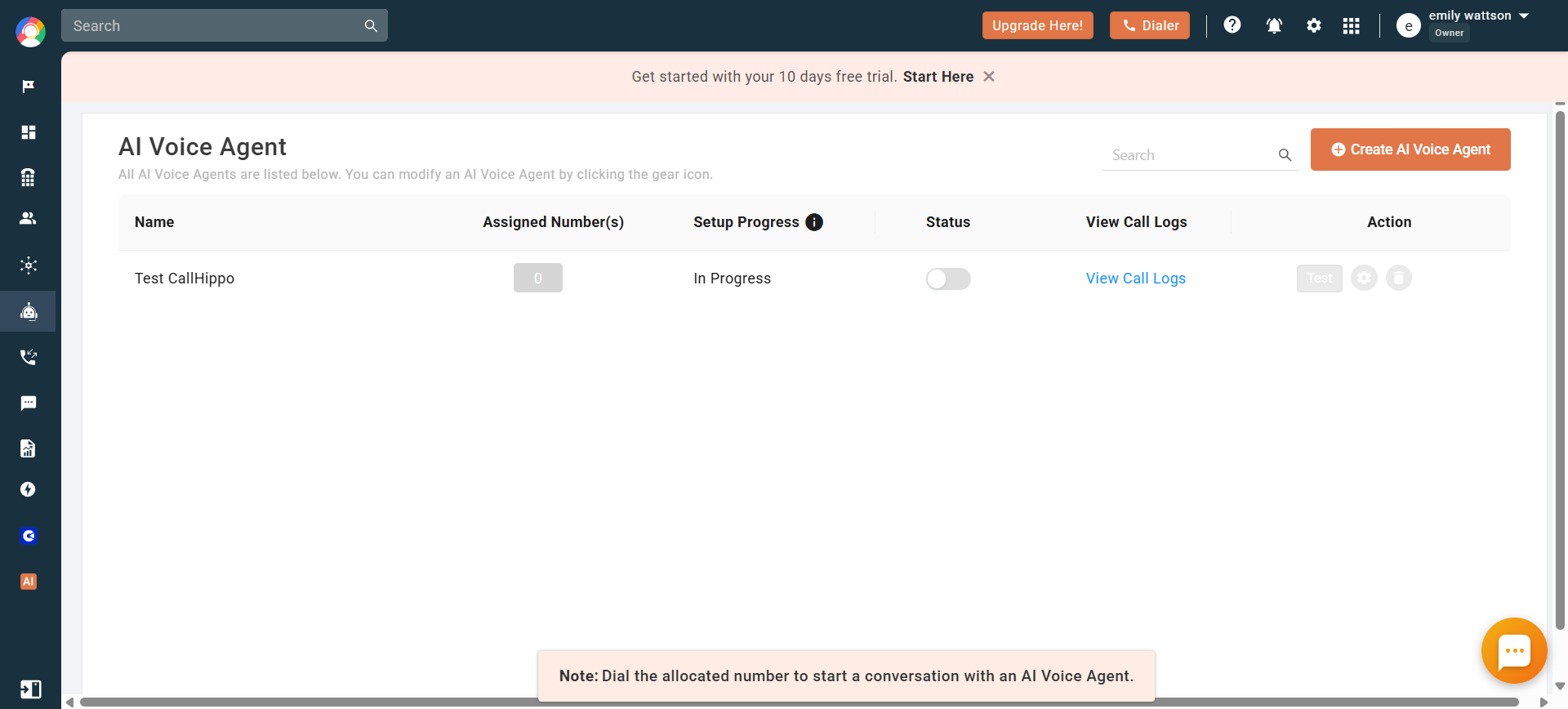
CallHippo AI Sales Agent enhances your sales outreach by automating call handling, lead generation, lead qualification, and follow-ups, working nonstop to connect with prospects, identify high-potential leads, and nurture them automatically. It ensures timely engagement and drives conversions efficiently, so your sales pipeline keeps moving without delays.
Features
- Lead prioritization
- AI simultaneous outbound calling
- Smart DID routing
- Real-time analytics
- AI voice bot
- CallHippo is quick to set up, and new users often mention being able to start making calls shortly after account creation.
- Admins have control over roles, routing, permissions, and business hours, allowing for custom workflows and better team coordination.
- Users appreciate features like call recording, call tracking, IVR, reply assistant, and analytics that enhance productivity and performance monitoring.
- A few users mentioned needing to follow up multiple times to get issues resolved.
- Trial users mentioned they couldn’t test all the features before purchasing.
Pricing
- Custom pricing
With Our AI Sales Agent
- Lead Generation
- Sales Automation
- Personalized Pitches
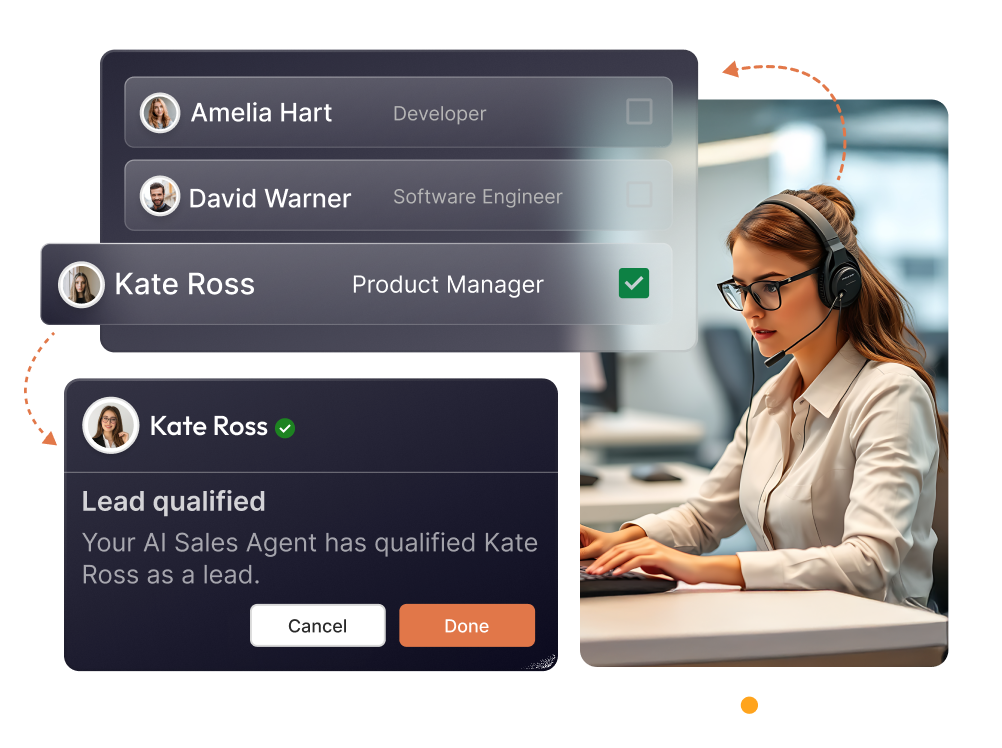
2. Outreach
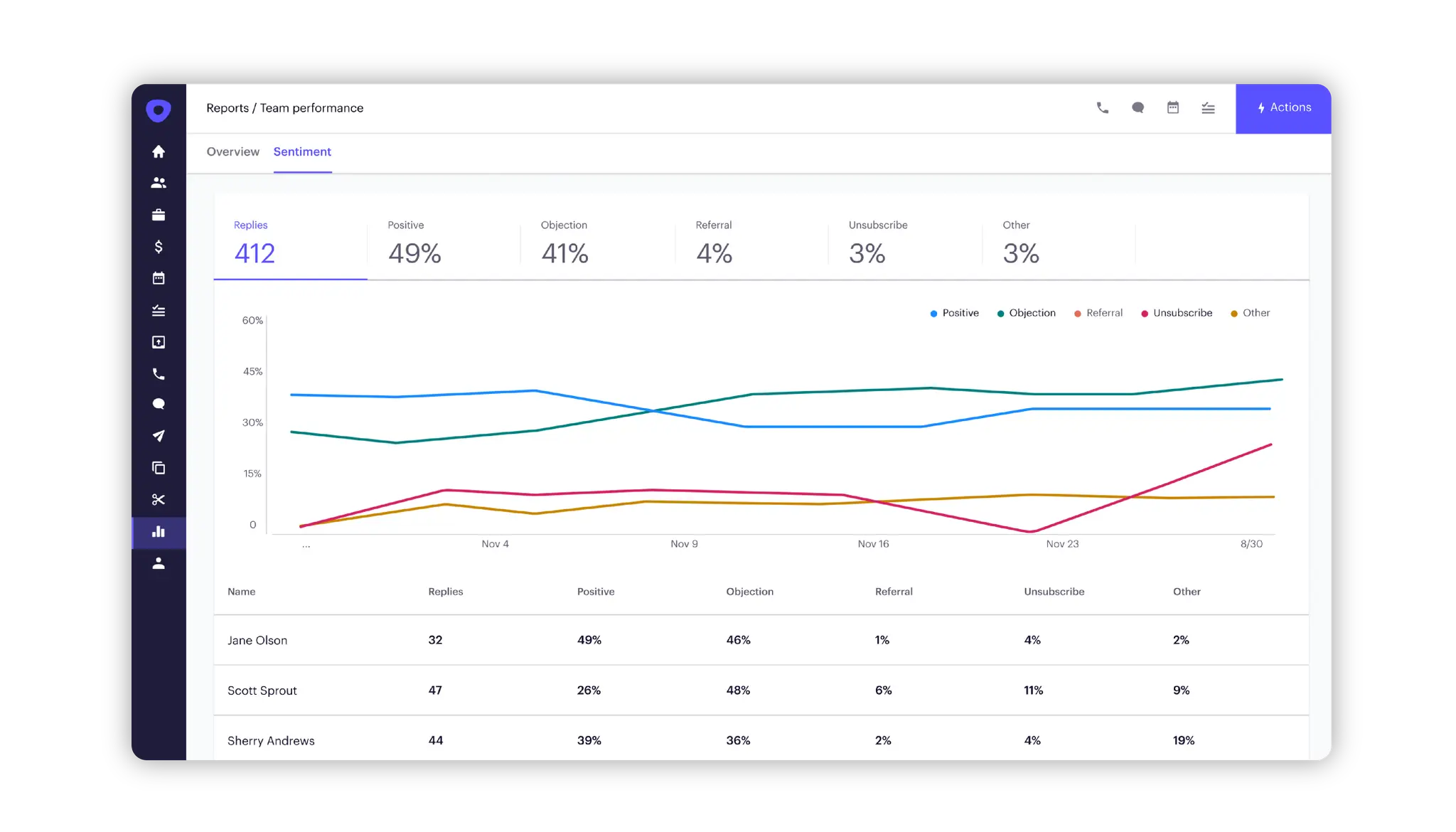
Outreach empowers Sales, Marketing, RevOps, and Customer Success teams with AI-driven workflows that improve agent productivity, pipeline coverage, and forecasting accuracy. Outreach turns every rep into your top performer using real-time insights, intelligent automation, and personalized coaching to drive results across the entire revenue cycle.
Features
- Lead management
- Performance management
- Interaction tracking
- Reporting and statistics
- On-demand recording
- Outreach allows combining email, phone, and LinkedIn into seamless drip campaigns and sequences.
- Users love its user-friendly design, task scheduling, and time-saving automation tools.
- Outreach connects well with Salesforce, making workflows smoother for sales teams.
- Many users complain about slow, unhelpful, or dismissive customer service.
- Occasional call quality issues, syncing bugs, and glitches make it frustrating at times.
Pricing
- Custom pricing
3. SalesLoft
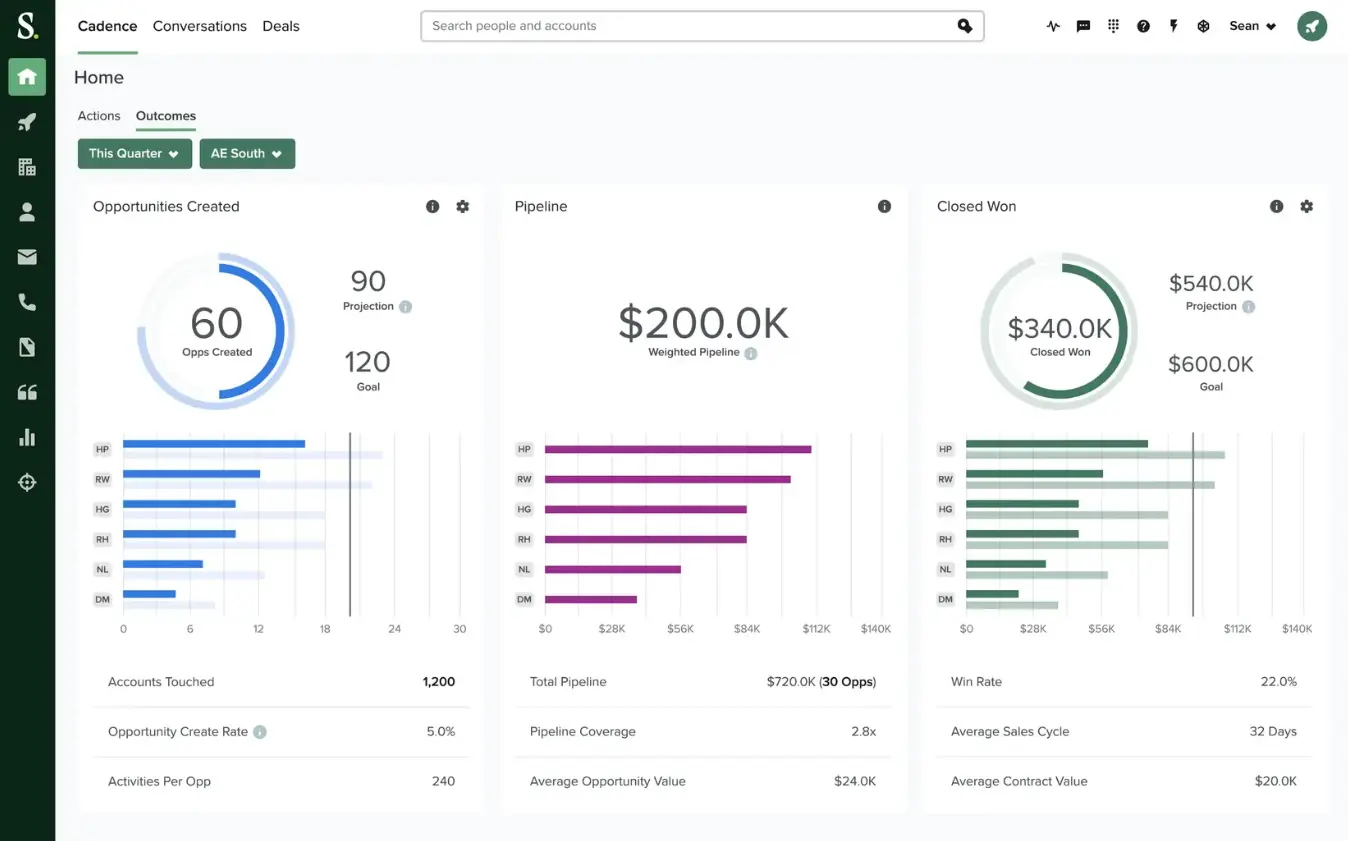
Salesloft is an all-in-one sales engagement platform that empowers revenue teams to work smarter and close deals faster. With purpose-built AI agents, it streamlines workflows, enhances deal visibility, and helps teams take consistent, data-driven action across the entire sales cycle, leading to predictable, repeatable success.
Features
- Lead management
- Email management
- Scheduling
- Call tracking
- Sales pipeline management
- Salesloft is user-friendly, with an intuitive interface that helps users stay organized and manage tasks smoothly.
- Users love the cadences as they help with consistent follow-ups and reduce the chance of leads falling through the cracks.
- From mass outreach to analytics and email integration, Salesloft offers strong tools that save time and improve efficiency.
- Some users reported unreliable phone features, affecting workflow and causing frustration.
- Issues with email formatting and limited LinkedIn integration can make some tasks feel clunky or restrictive.
Pricing
- Advanced: custom pricing
- Premier: custom pricing
- 45-day free trial
4. Pipedrive
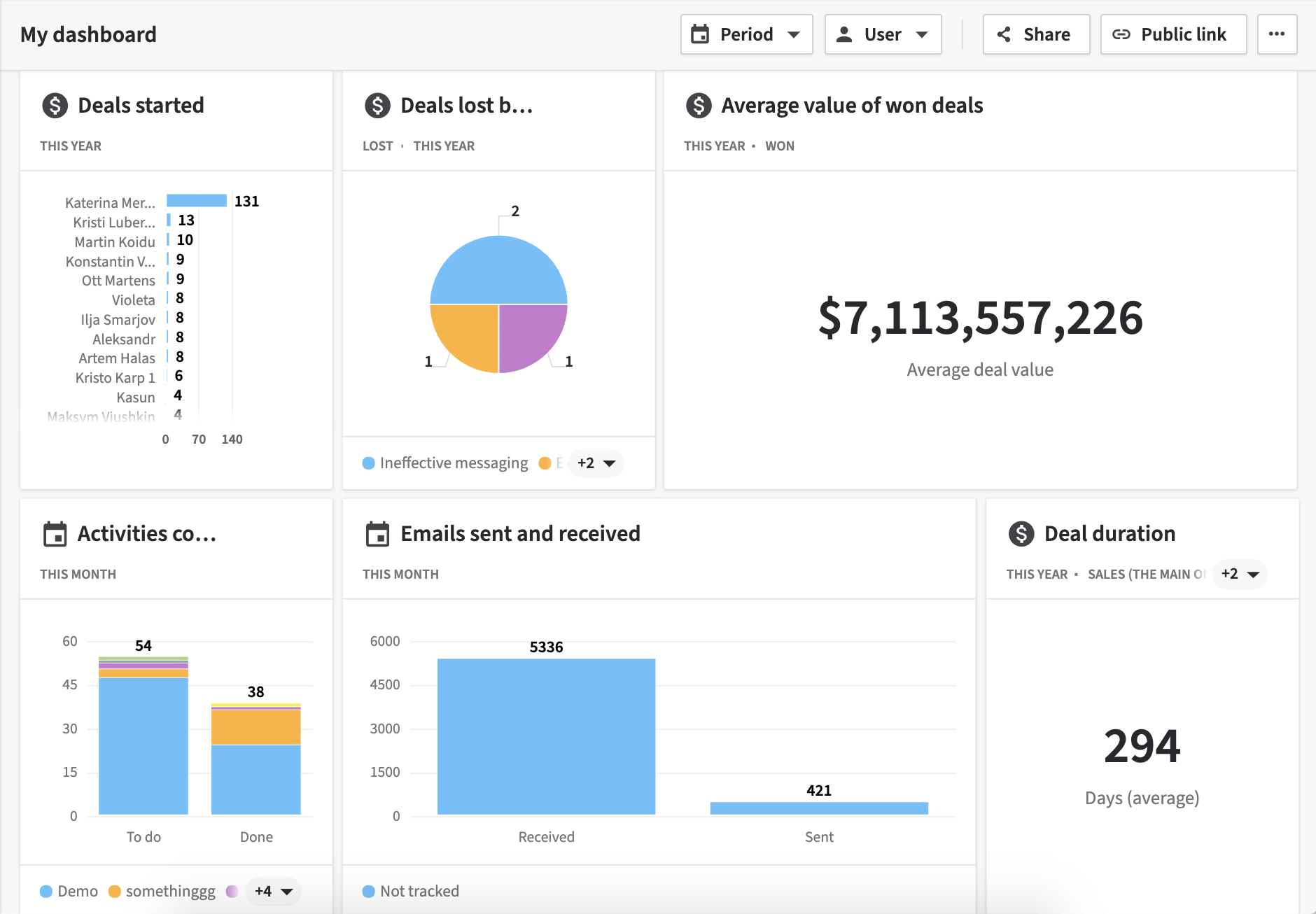
Pipedrive is an easy-to-use CRM that helps you close more deals with smart automations, AI-powered lead management, and real-time sales insights. Trusted by multiple companies, it streamlines your entire sales process so you can focus on selling, not managing. Try it free with no credit card required.
Features
- Contact management
- Reporting/analytics
- Lead engagement
- Inbox management
- Call list management
- Users love how intuitive and clean the interface is, making it simple to manage pipelines and sales activities.
- It connects well with tools like Zapier, Calendly, and email platforms, streamlining the sales process.
- Features like quote management and sales tracking help teams stay organized and close more deals.
- Some users struggled with setup, especially when migrating from other CRMs like Salesforce.
- Reporting could be more customizable, and pricing may be steep for small teams.
Pricing
- Essential: $14/seat/month
- Advanced: $24/seat/month
- Professional: $49/seat/month
- Power: $59/seat/month
- Enterprise: $79/seat/month
- 14-day free trial
5. HubSpot Sales Hub
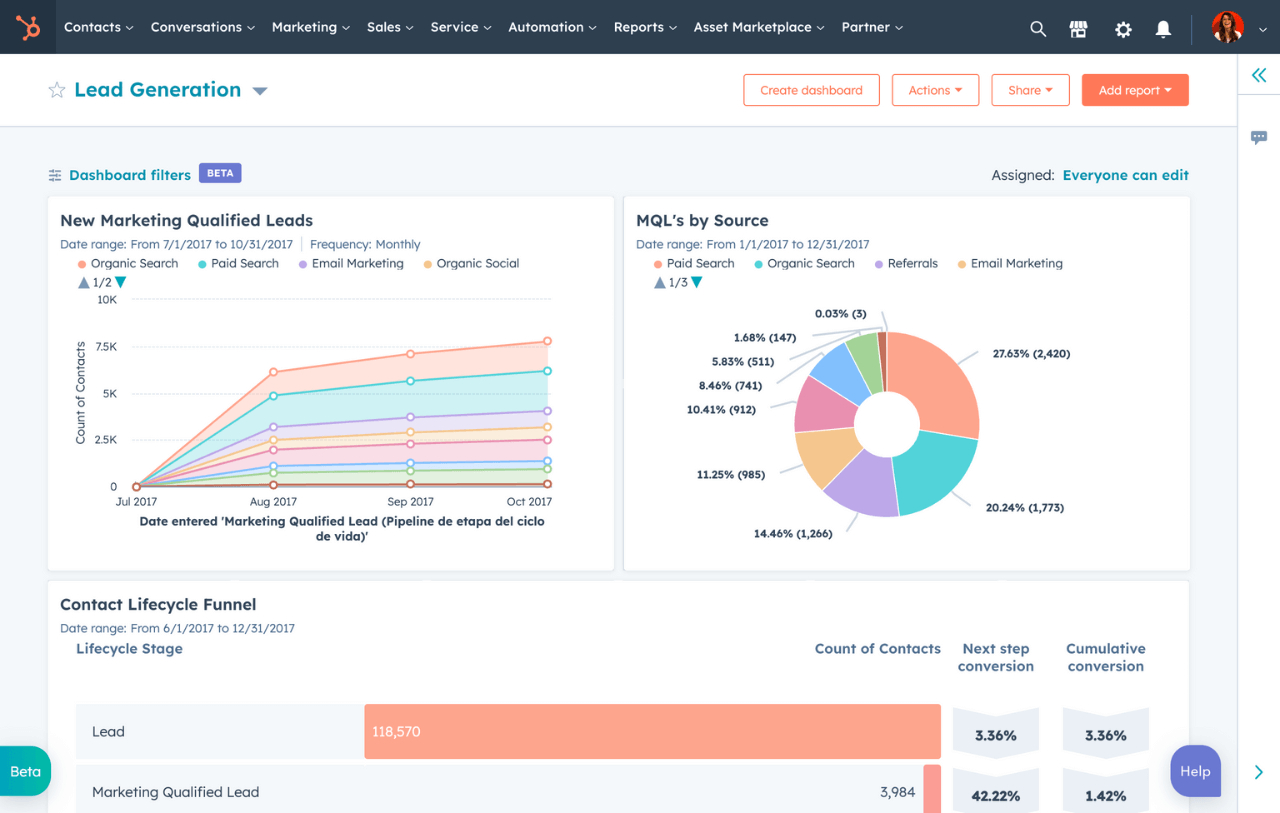
HubSpot Sales Hub is an AI-powered sales engagement platform designed to help teams build better pipelines and close deals faster. It offers smart automation, lead management, email tracking, and real-time analytics, making it easy to prioritize leads generation, streamline outreach, and scale revenue with personalized, high-impact sales engagement tools.
Features
- Pipeline management
- Lead generation
- Email management
- Sales forecasting
- Campaign analytics
- Many users say it's user-friendly with a small learning curve, making it simple for beginners to get started.
- You can track emails, leads, calls, and tasks in one place, with helpful features like Gmail integration and reporting.
- It improves sales tracking, lead management, and helps teams hit goals with accurate data and automation.
- Switching between tools or hubs isn’t always smooth, and updates can make workflows tricky.
- Adding advanced features or using the full potential of the platform can get costly for smaller businesses.
Pricing
- Free
- Starter: starts at $15/seat/month
- Professional: starts at $100/seat/month
- Enterprise: starts at $150/seat/month
6. Lemlist
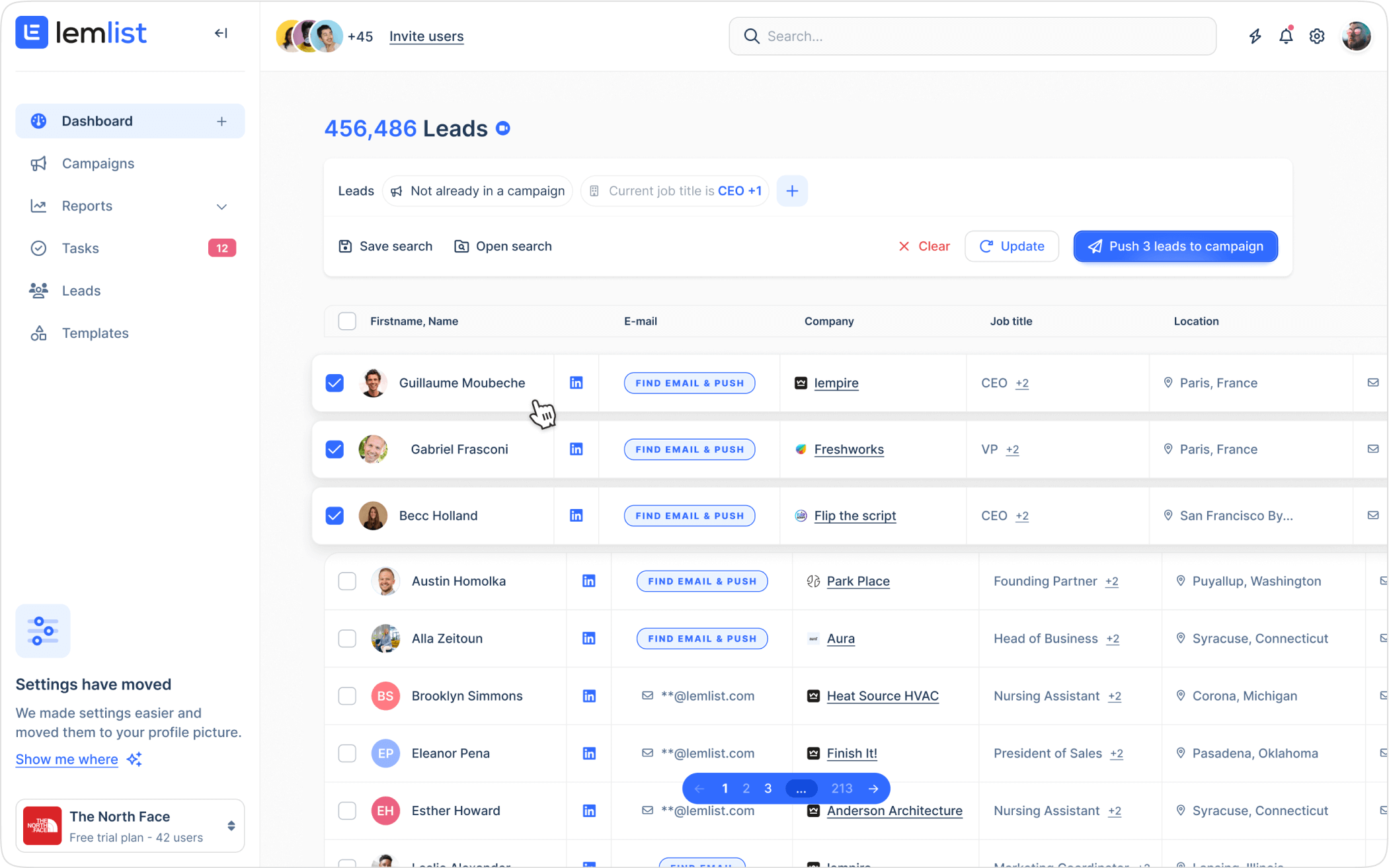
Lemlist is the all-in-one sales engagement platform built to help you find leads, enrich contact info, and run personalized multichannel outreach across email, LinkedIn, and calls without landing in spam. With AI-powered personalization, verified contact data, and built-in deliverability tools, it’s trusted by multiple teams to actually get replies.
Features
- A/B testing
- ROI tracking
- Lead generation
- Workflow management
- Multichannel marketing
- Lemlist allows users to customize emails with text, images, and tokens like names or companies pulled from spreadsheets.
- The platform is easy to use, even for beginners, with helpful blogs and a clean interface.
- Lemlist excels at cold emailing, with useful tools like email warmers, A/B testing, and campaign tracking.
- Some users noted the lack of native CRM integrations and limited Zapier access in lower-tier plans.
- A few users reported delays or issues with emails not sending on time and unhelpful support responses.
Pricing
- Email Pro: $55/month/user
- Multichannel Expert: $79/month/user
- Enterprise: custom pricing
- 14-day free trial
7. Yesware
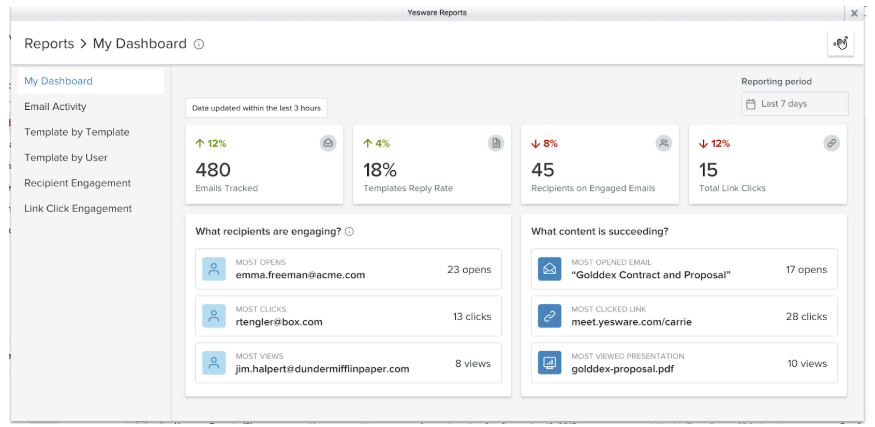
Sales teams use Yesware to send personalized emails at scale, right from Gmail or Outlook. It tracks opens, clicks, and replies, helping reps follow up at the right time. With built-in templates, CRM sync, and zero setup hassle, teams close more deals without changing their outreach workflow.
Features
- Task management
- Contact management
- Reporting/analytics
- User management
- Collaboration tools
- Knowing when someone opens or clicks an email gives sales reps great timing for follow-ups.
- Pre-set templates help personalize emails at scale and improve productivity.
- Automatically syncing emails helps keep everything organized and reduces manual work.
- Users can't easily add images or media without formatting issues.
- Some users report that tracked emails land in spam or don't send at all.
Pricing
- Free
- Pro: $15/seat/month
- Premium: $35/seat/month
- Enterprise: $65/seat/month
- Custom: Custom pricing
- 14-day free trial
8. RingCentral Engage
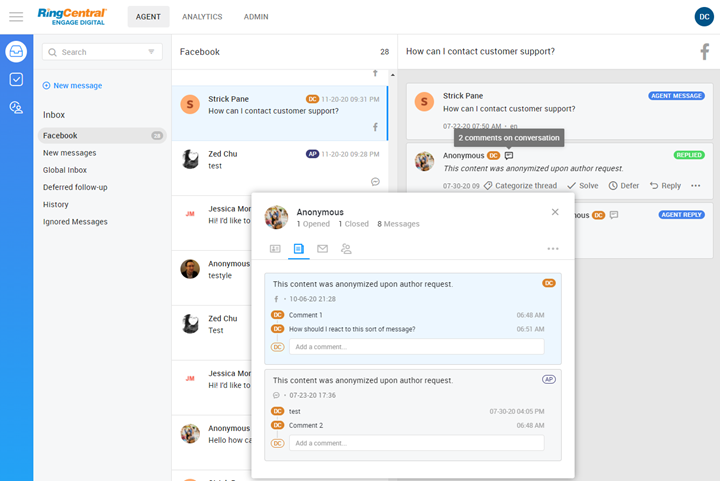
RingCentral Engage is a cloud-based interface that allows administrators to manage agents, configure digital channels, set routing rules, and oversee performance analytics. It streamlines message handling across email, social media, and chat, enabling efficient customer support and ensuring agents receive the right messages at the right time.
Features
- Live chat
- Customer database
- Reporting/analytics
- Activity tracking
- Feedback management
- Easy to use with a clear dashboard that simplifies communication and task management.
- Supports calling, texting, faxing, and team collaboration—great for both small teams and remote setups.
- The mobile app and video call features offer flexibility and help you stay connected on the go.
- Notifications can sometimes fail or get delayed, which may cause you to miss important messages.
- Some features may feel unnecessary or confusing, especially for new or less tech-savvy users.
Pricing
- Starter
- Standard
- Premium
- Not for: Businesses with 1-2 leads a week
- Ideal for:
SDR teams doing 30+ touches/day
Remote sales teams that need a unified outreach
Companies scaling outbound and follow-ups
Overcoming the Top Challenges in Sales Engagement
Even the best sales engagement tools won’t help if they are not used correctly and often. The upside is obvious, but these processes can sometimes be a bit challenging.
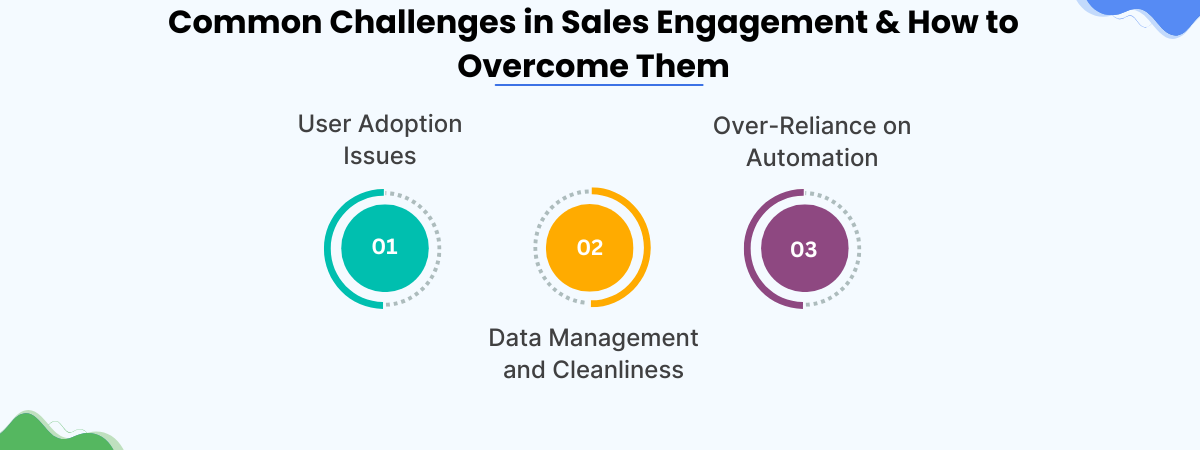
Let’s look at three main obstacles for businesses in adopting sales engagement platforms and how you can manage or overcome them without losing momentum.
1. User Adoption Issues
If the software the reps are using is confusing, clunky, or doesn’t relate to their day-to-day work, they will not engage with it at all. They may revert to using spreadsheets, sticky notes, or whatever they usually use. This is where your alignment disappears, and what was an investment starts feeling like a sunk cost.
How to fix it:
- Engage your team early. Ask them to demo the options and provide input before you even purchase the platform.
- Select a tool that feels natural to use. A clean, effective interface and intuitive navigation go a long way.
- Offer proper onboard and ongoing training, not just a single walkthrough, when you want your team to learn to use a new tool effectively.
- Emphasize what’s in it for them– Faster outreach, no missed leads, and higher close rates.
Salespeople use tools to help them do their work better. If you demonstrate the time-saving potential and real results, they will adopt your product.
2. Data Management and Cleanliness
Virtually all sales engagement platforms rely on data in their workflows. Your sales team will waste time and effort following up on leads that aren’t even valid anymore. They will be unable to differentiate between duplicate records, will have multiple outreach campaigns happen on a lead, or will have incomplete data fields for leads whom they are attempting to sell to.
How to fix it:
- Select a platform that integrates well with your CRM and syncs both ways automatically.
- Utilize built-in tools that find and merge duplicates, flag errors, and suggest updates.
- Establish a process for regularly reviewing data, whether monthly or quarterly, so your system is always lean and clean.
- Train your reps to consider data entry as part of the process and something valuable (instead of an afterthought).
Good data means better outreach, better targeting, and better results. It may not be glamorous, but it is necessary.
3. Over-Reliance on Automation
Using too much can make outreach feel automatic and robotic, even impersonal. You’ve likely received one of those generic emails:
“Hi [First Name], I saw your company does great work at [Company Name]”.
This kind of tone creates distrust before you even start a conversation. Even worse, if you just set your automations on autopilot and don’t review performance.
How to fix it:
- Use automation for efficiency, not laziness, make it personal where it matters – subject lines, list of pain points, recent activity..
- Be sure to analyze the metrics frequently. If open rates go down or you’re not getting any replies at all, something has gone terrible wrong in your messaging or your cadence.
- Make sure you are balancing automation and human aspects in your outreach. For example, you can send follow-up emails or LinkedIn messages with a customized video after you send the automation email.
Automation should be a system of support, not replacing the thoughtfulness of selling. The best sales engagement software will be automated in a way that promotes smart automation without taking the human element away.
Conclusion
A sales engagement platform offers the best advantage of bringing all of the disparate tools together, automating follow-ups, and giving your team the best chance to engage effectively. If you’re looking to streamline outreach and close more deals, explore options like CallHippo’s AI Sales Agent or any of the top sales engagement platforms listed above.
Frequently Asked Questions
1. What’s the difference between CRM and sales engagement software?
A CRM stores lead and customer information. Sales engagement platforms manage how and when you interact with those leads across channels.
2. Can small teams use sales engagement tools?
Yes, even solo reps or small teams benefit from automation, templates, and insights—just make sure the platform scales with your growth.

Subscribe to our newsletter & never miss our latest news and promotions.









